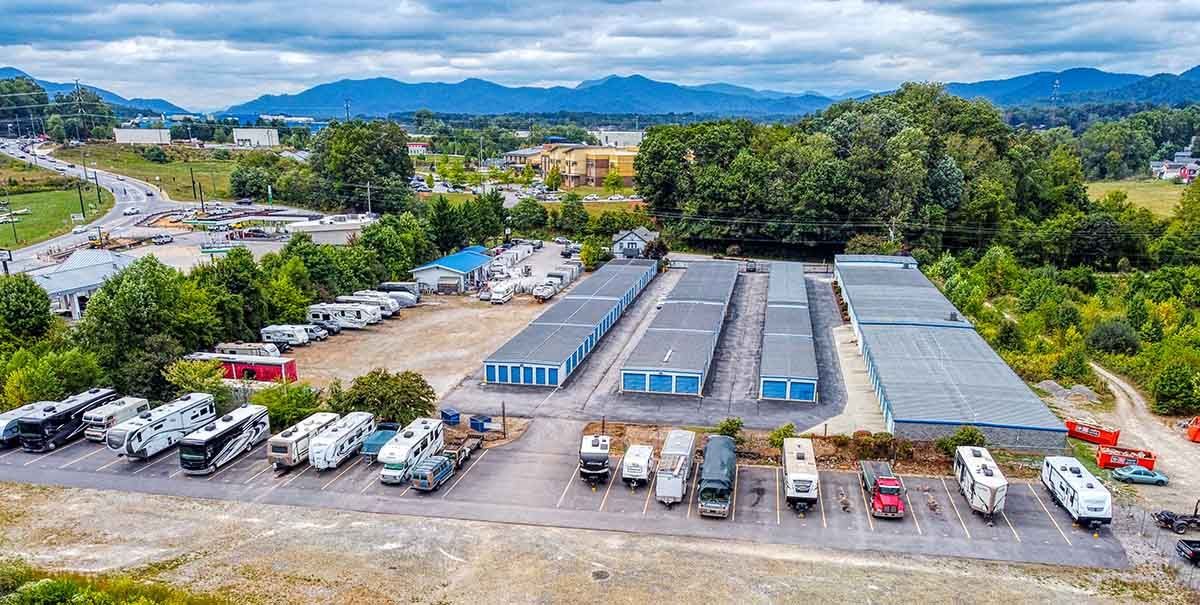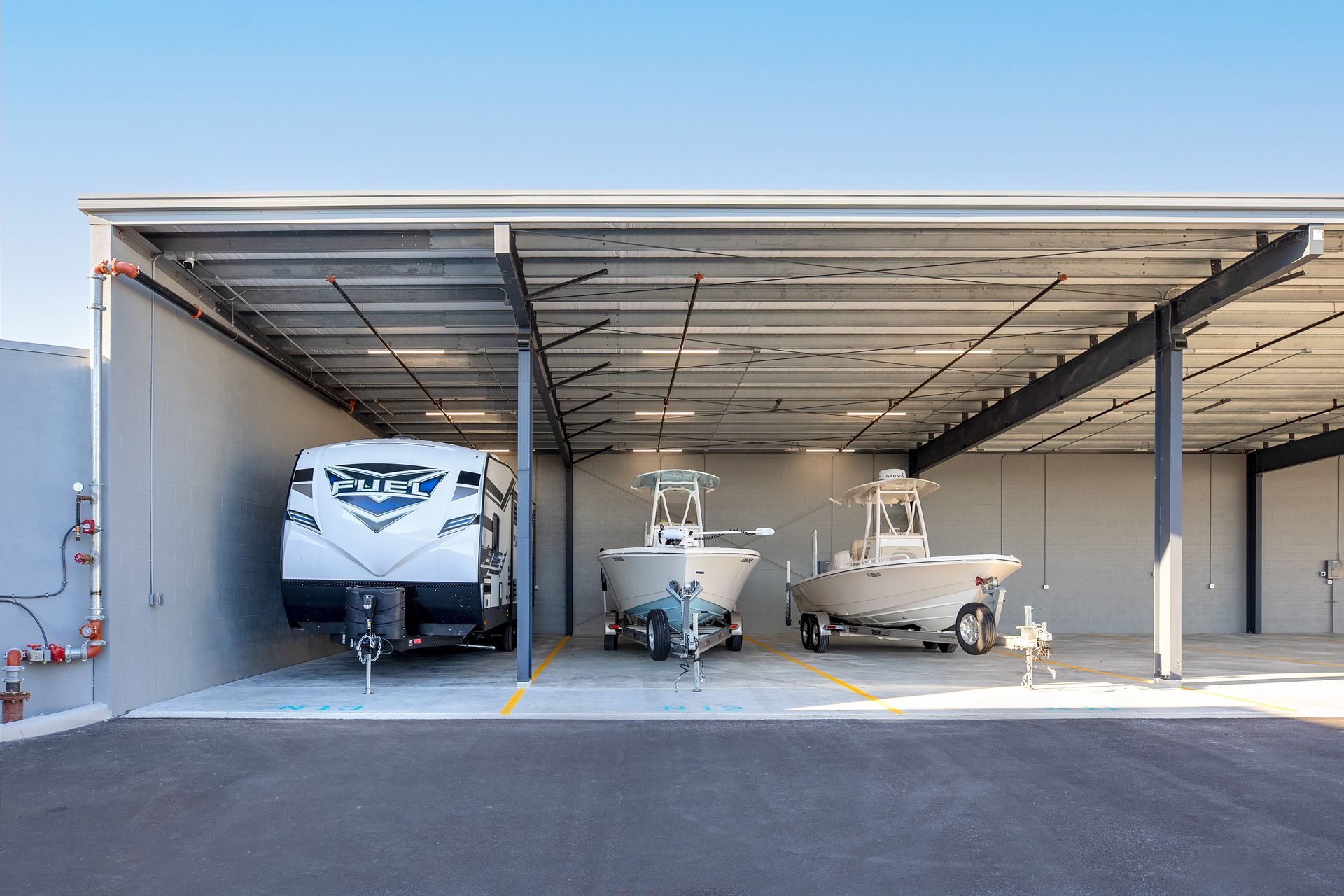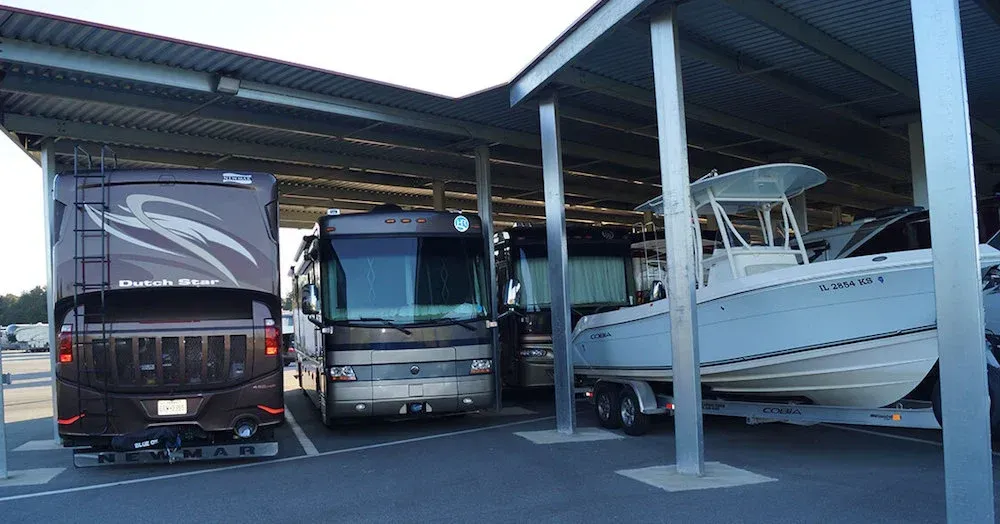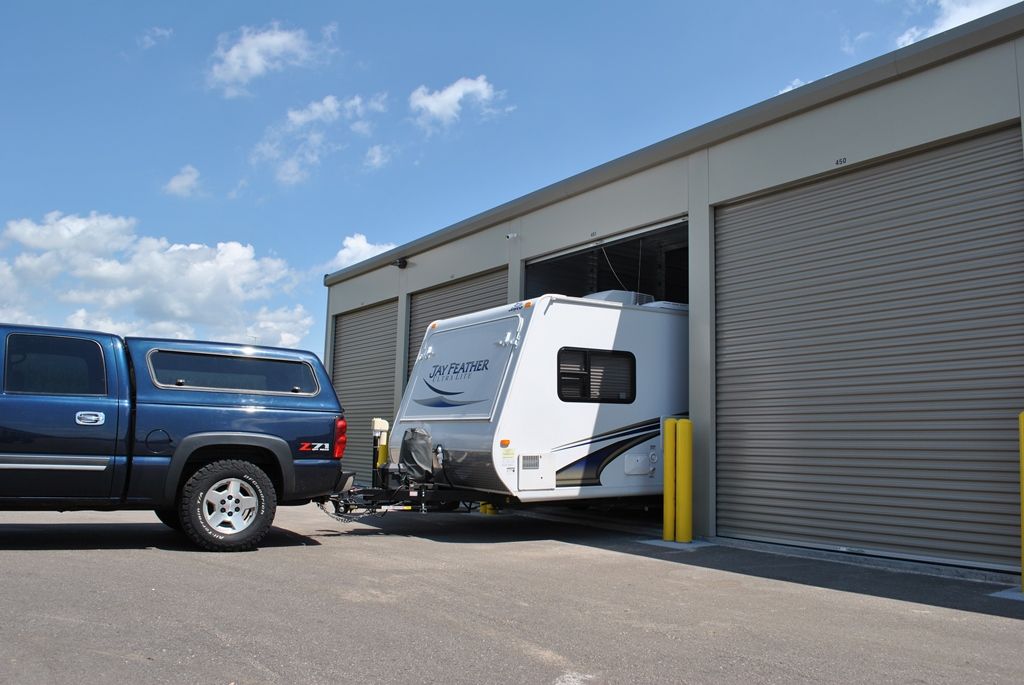RV Storage Units vs. Traditional Parking: Which Option Is Right for You?

When it comes to storing your RV, you have several options to choose from. The two most common choices are
RV storage units and traditional parking. But how do you know which one is right for your RV and lifestyle? In this blog, we’ll break down the pros and cons of RV storage units and traditional parking, covering key factors like cost, protection from the elements, accessibility, and security. Whether you're a weekend warrior or a full-time RV traveler, this guide will help you make an informed decision about your storage needs.
Understanding Your RV Storage Needs
Before diving into the differences between RV storage units and traditional parking, it’s important to understand your specific needs as an RV owner. For some, convenience and cost might be the primary concern, while for others, security and protection from the weather might take precedence. By evaluating how often you use your RV and the type of environment in which it's stored, you can choose the best option for your situation.
The Importance of Proper RV Storage
Proper storage of your RV is crucial for maintaining its condition and extending its lifespan. If you neglect to store it correctly, your vehicle could suffer from wear and tear due to exposure to the elements, vandalism, or accidents. Let’s take a closer look at the two main storage options and what they offer.
RV Storage Units: The Comprehensive Solution
What are RV Storage Units?
An RV storage unit is typically a dedicated, secure space specifically designed for storing RVs. These storage units can be either indoor or outdoor, offering a variety of features depending on the facility. Many modern RV storage units are equipped with advanced security systems, climate control, and other amenities to ensure your RV remains in top condition when you're not on the road.
Benefits of RV Storage Units
- Enhanced Protection from the Elements: One of the major benefits of RV storage units is the protection they offer from the weather. Whether it’s extreme heat, cold, or rain, an indoor storage unit will keep your RV sheltered, which is especially important for preventing issues like fading paint, rust, or interior damage. This is an ideal option if you live in a climate with extreme seasonal changes.
- Security:
RV storage units often come with enhanced security features such as surveillance cameras, gated access, and individual locks. This makes them a safer choice if you're concerned about theft or vandalism. Many facilities also offer 24/7 monitoring, giving you peace of mind that your RV is in good hands.
- Climate Control: Some RV storage units offer climate control, which helps to prevent damage caused by humidity or extreme temperatures. This can be particularly beneficial for sensitive components like electronics, upholstery, and tires.
- Convenience: Depending on the facility, RV storage units might be located in areas with easy access to highways or travel routes, making it convenient to pick up or drop off your RV whenever needed.
- Additional Services: Many RV storage units also provide other services such as RV washing, maintenance, and even waste disposal. This can be a major convenience for RV owners who want a one-stop shop for all their storage and maintenance needs.
Considerations for RV Storage Units
- Cost:
RV storage units are generally more expensive than traditional parking spaces, especially if you’re looking for indoor, climate-controlled units. The cost can vary depending on location, size of the unit, and additional services offered. While it’s a more significant upfront investment, it can save you money in the long run by protecting your RV from costly repairs.
Availability: Depending on where you live, availability can be an issue. Popular RV storage units in high-demand areas may have long waiting lists, especially if you're looking for indoor storage.
Traditional Parking: The Budget-Friendly Option
What is Traditional Parking?
Traditional parking refers to leaving your RV in an open parking lot or at an outdoor facility with minimal amenities. While it’s often the least expensive option, traditional parking offers fewer protections compared to RV storage units.
Benefits of Traditional Parking
- Affordability: The most obvious benefit of traditional parking is cost. Outdoor parking spaces are typically much cheaper than RV storage units, especially if you’re looking for basic, uncovered parking. This can be a great choice for budget-conscious RV owners.
- Easy Access: If you're looking for a simple, no-frills solution, traditional parking provides quick access to your RV. You won’t have to worry about complex access procedures or facility rules—just park your RV and go.
- Availability: In many areas, traditional parking spaces for RVs are plentiful and relatively easy to find. You might even be able to park in public lots, although this will depend on local regulations.
Considerations for Traditional Parking
- Exposure to the Elements: Unlike
RV storage units, traditional parking spaces offer no shelter from the weather. If you leave your RV outdoors, it will be exposed to rain, snow, intense sunlight, and fluctuating temperatures. This can lead to damage over time, such as faded paint, rust, and weathering of exterior materials.
- Security Risks: Traditional parking offers minimal security. Your RV could be a target for theft, vandalism, or even accidents from other vehicles. While some outdoor parking facilities may have fences or surveillance, they typically lack the security measures found in RV storage units.
- Maintenance Concerns: If your RV is parked outdoors for extended periods, it may require more frequent maintenance. The sun and rain can cause damage to the tires, rubber seals, and roof, leading to premature wear and tear.
Key Differences Between RV Storage Units and Traditional Parking
| Feature | RV Storage Units | Traditional Parking |
|---|---|---|
| Cost | Generally higher, especially for indoor units | Lower cost for outdoor parking |
| Protection from Weather | Provides shelter, climate control options | No shelter from weather elements |
| Security | Enhanced security with cameras, gated access | Minimal security, vulnerable to theft |
| Accessibility | May require advbooking, facility rulesanced | Generally easier access, no booking needed |
| Maintenance | Some offer maintenance services | No maintenance services available |
Which Option Is Right for You?
The decision between RV storage units and traditional parking largely depends on your priorities as an RV owner.
- Choose RV Storage Units If: You value security, protection from the elements, and are willing to invest in long-term care for your RV. If you live in an area with extreme weather or want to preserve your RV's condition, RV storage units are the better option.
- Choose Traditional Parking If: You’re on a tight budget and don’t mind a little exposure to the elements. If you only use your RV occasionally and are okay with some wear and tear, traditional parking might be sufficient for your needs.
Make the Best Choice for Your RV
Choosing between RV storage units and traditional parking requires careful consideration of your budget, security needs, and how much protection you want for your RV. Whether you decide to go with a more secure, weather-protected RV storage unit or opt for the budget-friendly traditional parking, it's important to select a solution that meets both your short-term and long-term needs.
At St. Charles RV Storage, we offer a range of RV storage units that provide secure, weather-resistant solutions for your vehicle. Our facility is equipped with top-notch security and convenient access, so you can rest easy knowing your RV is in good hands.
For more information on our services or to reserve your spot, contact us at (636)-500-1638 or via email at stcharlesrvstorage@gmail.com. Let us help you protect your RV and keep it in excellent condition for your next adventure!
Frequently Asked Questions
1. What is the difference between RV storage units and traditional parking?
RV storage units offer more protection for your vehicle, providing secure and sheltered spaces with added security features like cameras and gates. In contrast, traditional parking usually involves outdoor, uncovered spaces with limited security, offering less protection from the weather. RV storage units are ideal if you want to preserve the condition of your RV, while traditional parking may be more suitable for those on a budget
2. Are RV storage units more expensive than traditional parking?
Yes, RV storage units are typically more expensive than traditional parking. The cost difference is due to the added amenities, security, and protection from the elements that RV storage units provide. However, if you're looking for a low-cost option and don’t mind your RV being exposed to the weather, traditional parking can be a more affordable solution.
3. How do I choose the best RV storage unit for my vehicle?
When selecting an RV storage unit, consider factors such as location, security, availability of indoor or climate-controlled units, and any additional services offered, like maintenance or washing. If you’re looking for protection from the weather and enhanced security, opt for an indoor unit with 24/7 surveillance. If budget is a concern, outdoor RV storage units might be a suitable choice.
4. Can I park my RV in traditional parking for long-term storage?
While traditional parking can be used for long-term storage, it exposes your RV to the elements, which can cause damage over time. If you're storing your RV for an extended period, RV storage units are a better option, as they provide protection from rain, snow, and sun, helping to preserve the vehicle's exterior and interior condition
5. What are the security benefits of RV storage units compared to traditional parking?
RV storage units offer superior security with features such as gated access, 24/7 surveillance, and individual unit locks, reducing the risk of theft or vandalism. Traditional parking lacks these security measures, leaving your RV vulnerable to theft and other security concerns. If security is a priority, RV storage units are the safer option


